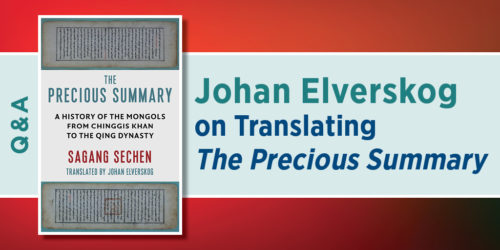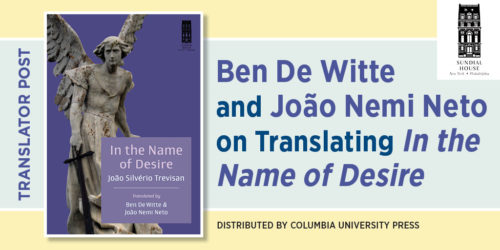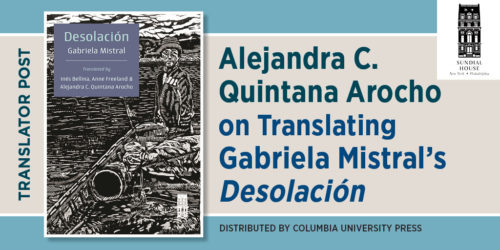Lily Meyer on Translating Ice for Martians

In Perú, the word marciano has two meanings. It can refer either to a Martian or to a common type of fruit popsicle, which is to say it can be either alien or quotidian. In Claudia Ulloa Donoso’s “Ice for Martians,” the title story of this collection, marciano pulls double duty. Technically speaking, the only marcianos in the text are popsicles—but every time Claudia and I discussed the story while I was translating it, she reminded me (as if I could forget!) that its characters are so odd, their outlook so estranged, that although they seem to outsiders to be a nice, normal Lima family, they might as well be from Mars.
Claudia is an expert at writing gently alienated characters. Sometimes, their dislocation is the result of geography; much of her collection Little Bird, which I also translated, draws on her experiences moving from Peru to Spain to Norway, where she now lives. Occasionally, it stems from their social conditions: consider “Alarm,” in which every sound and moment is skewed by the narrator’s terror of her abusive partner, or “The Transfiguration of Melina,” whose religious teenage heroine starts the story detached from her sexuality, and ends it anything but. More often, though, Claudia’s characters are simply Martians: their perspective on the world is singular, whether they want it to be or not.
More often, though, Claudia’s characters are simply Martians: their perspective on the world is singular, whether they want it to be or not.
Claudia never romanticizes her protagonists’ singularity. Instead, she uses it to create a potent, idiosyncratic mix of pathos and comedy. In Ice for Martians, readers can see this balance shifting between stories—and over time. “Actor” and “I Just Wanted a Cigarette,” both of which first came out in the early 2000s, go deep into the minds of characters who simply do not know how to be. Both stories are intensely uncomfortable to read, since their narrators are uncomfortable inside themselves. In contrast, “Ice for Martians” and “The Transfiguration of Melina,” which are new, are full of upheaval, yet suffused with befuddled joy. Melina may well be Claudia’s happiest protagonist yet. It certainly made me happy to translate her—although translating each of Claudia’s stories, with the exception of the utterly wrenching “Alarm,” made me happy.
I do not make the above statement lightly. For me, translating, a creative practice I love, is rarely joyful moment to moment. Like many other difficult activities, it is fun to imagine, fun to plan, and fun to remember—and, of course, transcendently fun when it goes well. Often, though, I sit in front of my drafts and dictionaries wanting to tear my hair out, or rip all my notes up, or go into hiding. (Too bad there’s no witness protection program for literary failures.) Characters like Melina remind me, even as I struggle to render them into vivid English, that confusion and turmoil are not always bad things. They can, in fact, be gateways to pleasure. Alienation can lead directly to wonder. Through the eyes of Claudia’s metaphorical Martians, even the quotidian is beautiful.
Lily Meyer is a writer, translator, and critic. She translated Ice for Martians: Hielo para marcianos, second edition.








